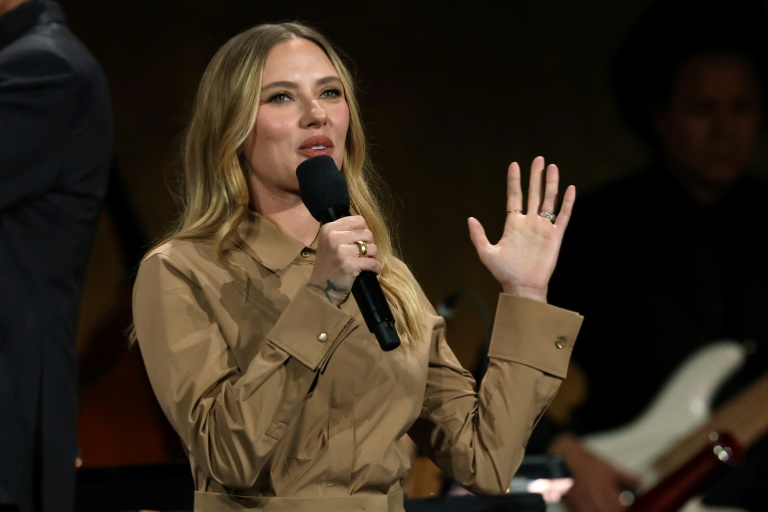(AFP) – Donald Trump doubled down Sunday on hard-line campaign pledges to impose trade tariffs and carry out mass deportations, while dangling the idea that the United States could withdraw from NATO after he takes office next month. In his first formal television interview since the election — and just six weeks before Inauguration Day — Trump again signaled that US support for Ukraine will scale back, saying he will “probably” cut the aid helping Kyiv repel Russia’s invasion. The president-elect also said he would “very quickly” look at pardons for supporters jailed for storming the US Capitol after his 2020 election defeat to Joe Biden.
The interview on NBC’s “Meet the Press with Kristen Welker” was taped Friday but aired Sunday, following Trump’s meetings with the presidents of France and Ukraine over the weekend — his first foreign trip since winning the November election against Vice President Kamala Harris. Trump reiterated his familiar threat to leave NATO, the cornerstone of security in Europe since World War II, saying that US allies do not pay enough for their defense. “If they’re paying their bills, and if I think they’re treating us fairly, the answer is absolutely I’d stay with NATO,” he said. But there is also “absolutely” the possibility of America’s departure, he said.
He also stressed that his campaign promises of huge tariffs — including against top US trading partners Canada, Mexico and China — will be enacted. “We’re subsidizing Mexico and we’re subsidizing Canada and we’re subsidizing many countries all over the world,” he said. Vowing that “properly used” tariffs are “a very powerful tool,” Trump added that he would not only wield them economically, “but also for getting other things outside of economics.” As to whether Americans would see higher prices as a result of those tariffs, Trump said that “I can’t guarantee anything.”
– Mass deportations –
The Republican also said he would go ahead with what economists say could be the hugely disruptive mass deportation of undocumented immigrants in the United States. “I think you have to do it, and it’s a hard — it’s a very tough thing to do,” he said. And he said he would try to end the “ridiculous” constitutionally protected right to US citizenship for anyone born in the country.
The Republican offered a small olive branch to advocates for allowing some undocumented migrants — a key source of labor for much of the US economy — to stay. Trump said, “I will work with the Democrats” on the so-called “dreamers” — people who have grown up in the United States after entering the country illegally as young children. However, Trump suggested that even US citizens could be deported if they have family members who are in the country illegally — a legally dubious move and major escalation of current policy if carried out. “The only way you don’t break up the family is you keep them together and you have to send them all back,” he said.
– ‘Should go to jail’ –
Trump, who was impeached by Congress and criminally charged over his historic attempt to overturn the results of the 2020 election, once again refused to admit he lost that vote. “No, why would I do that?” he said. He also said that members of Congress who investigated him over the January 6, 2021, insurrection by his supporters “should go to jail.”
While stressing that he would not personally order law enforcement bodies to prosecute his political enemies, he said officials could take the decision to do so themselves. Asked whether his pick to head the FBI, Kash Patel, should go through with his frequent threats to go after political opponents, Trump answered: “If they think that somebody was dishonest or crooked or a corrupt politician, I think he probably has an obligation to do it.”
Trump said he will have “the absolute right” to prosecute domestic opponents because as president “I’m the chief law enforcement officer.” However, he said he was “not interested in that” and would instead work for economic growth and an end to illegal immigration, so that his “retribution will be through success.”
– Sebastian Smith
© 2024 AFP




